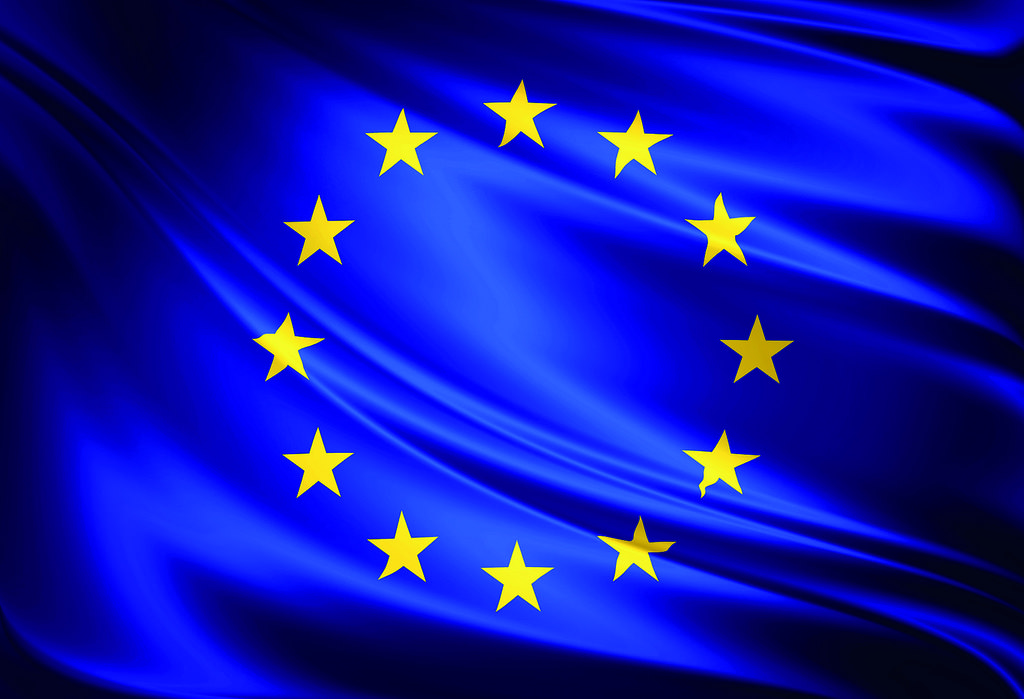
Multiples pathways to European identity formation: another forms of late national identity?
European national identity: A Europe of values?
Even if, as Fligstein clarifies, “anti-immigrants sentiments and policies may be loosely linked to the core of the integration project” (2012), a connection is to be recognised between a national-like conception of European identity and a more culturalist and exclusivist perception of Europeanness. In this respect, I will recognise in the European institutions and medias the main entrepreneurs of a European identity holding a certain conception of the nation as the only and ultimate horizon of identity-building. Indeed, the dominant top down narrative of European identity has been mediated, according to Eder, by symbols of national state power “borrowed from a nationally defined polity such as a European flag, a European anthem and the ritualized commemoration of successful political act such as the act of foundation which is represented in the fifteen stars flag” (2011). In light of the positive association between political identity and legitimacy, the main question underlying researches on European political identity becomes precisely whether the latter needs to follow the same path undertaken by its member states in the formation of a national identity. In this respect, being a European collective identity still in the process of coming into being, the pathway it should follow is a controversial issue which divides the literature. I will thereafter analyse the two main oppositional paradigms of political identity building, European culturalists and European post nationalists, in order to determine the extent to which a European collective identity could represent the opportunity to go beyond the boundary construction of a national body. According to Justine Lacroix (2002) we can distinguish three theoretical postponements finally resulting in two main oppositional paradigms: a the first category we count “national republicans” and “civic nationalists” (Lacroix, 2002). The first labelled by Delanty as an “essentialist position” (1995) recognise only one ground for both a political identity and citizens’ loyalty to political institutions in a cultural similarity and homogeneity, arising only in the context of nation-like communities. From this assumption derives the essentialists’ scepticism toward the European project as well as their rejection of the possible emergence of a European political identity, being impossible for the EU to follow the desirable path of its members states’ identity formation. In their view, “the ethnos can only be turned into a demos at the national level” (Lacroix, 2002). Other, civic nationalists that Lucarelli calls “European culturalists” (2011) consider it possible for a European identity and demos to exist, yet a relative ‘cultural homogeneity’ remains in their view a necessary and essential condition for a European deliberative democracy to emerge. In the case of the EU the requirements for a cultural identity become elements such as the common cultural heritage of classicism, Humanism, Christianity etc.. In their view no fixed political identity could ever emerge out of a pure civic and juridical conception of citizenship based on universal principles. Every political identity needs to be sustained by “a force already prevalent within men’s hearts” (Lacroix, 2002) that is by the internalisation of a common substantial culture of shared values. It can accordingly be implied that both civic nationalism and national republicanism can be reduced to a “nation-state cantered view”(Lacroix,2002) including both Eurosceptic and Europhiles, defenders of an intergovernmental “Europe of nation” and partisans of a supranational new “European fatherland” (Lacroix,2002). Despite the fact that the latters two approaches are commonly assumed to be oppositional they follow the same methodological nationalism informed by the same nationalist paradigm. In Lacroix’s words: “The debate between Europhiles and Eurosceptic is often not a debate of opposites but of equals – equals in their inability to understand political and social organisation in non- statal, national terms” (Lacroix, 2002). Indeed the cultural policy chosen in the mid 1980’s by the European institutions – the resort to European myth, European history, introduction of a new flag and anthem– goes hand in hand with the symbolic terrain upon which the authority and legitimacy of the nation state has traditionally been founded between the 1870 and 1914.
The politicization of a cultural idea: toward a post-national European identity
“Those supporters of the European Union who insist on the need to safeguard national references may have to bypass the nationalist principle, whilst those who envisage European integration as a broader substitute than the nation may surreptiously reassert the nationalist principle “(Ferry, 1991)
Constitutional patriotism, first theorized by J. Habermas in the mid 1980’s, is then the only discourse pledging for desirable to suppose the European Union, in the heterogeneity of its subcultures, to be the ground of a secular nation- building phenomenon. The latter rarely takes place without the exertion of a relevant amount of external and internal violence, by means of which a cultural homogeneity of the ethos is shaped in one and only demos of shared historical, cultural and geographical commonalities. Even if motivated by the pretended political necessity of a thick and thus cultural political identity – considered the only ground for a supranational European democracy– there is a great danger in conceiving the European Union project as a pathway toward the emergence of a European national identity. If the latter has its only foundation in shared cultural values grounded on an “idea of Europe”(Delanty,1995) that is essentially a cultural model – a cultural construct based on a geo-political entity– its politicization in a European collective political identity, ground of a European political citizenship “inevitably results in a distorted and regressive adversarial value system” (Delanty, 1995). If collective identities are always relational, the foundation of political identities on the universalization of relativistic cultural values as those embedded in the nation-like European idea, inevitably lead to a binary typology of “Us” and “Them” where the purity and the stability of the “We” is guaranteed first in the naming, then in the demonization and finally in a more or less violent denial of the Other (Delanty, 1995). Then the only way out of this ethno-nationalist conception of a European political community and identity is to be found in breaking the connection between the cultural idea of Europe and a European political citizenship, when being citizen of a political community, the European Union, is no more synonym of the affiliation to a geo-political culturally meaningful one, Europe. In this sense, the liberal post- nationalism argument contend that “democratic identity need not to be rooted in the national identity of the people: the social bond in liberal democratic states should be legal and political rather than historical, cultural and geographical” (Discussion sur l’Europe, 1992). It is exactly in this sense that Justine Lacroix opposes a Europe of values to a Europe of rights affirming that a “Europe of values is neither necessary nor desirable” (Lacroix, 2009). Indeed rather than on shared cultural and civilizational belonging, a European post national political identity should be established on the basis of those universal legal and moral principles that underpin the concept of democracy and the rule of law. Whether a post-nationalist identity is grounded on the necessary dissociation between a civic conception of citizenship and the cultural idea of nationality, this will never imply the denial of individuals’ national identification. It becomes here apparent that the necessity is one of critical attachment rather then abandoning national identities, adopting a scrutinizing attitude toward one’s historical and cultural legacy in taking responsibility for it. In other words: decentring national memory in a self- critique stance, recognising the existence of the other in acknowledging the crimes committed against him.
“European identity differs from national identity in the sense that it was, from the very beginning, founded on the permanent remembrance of its internal conflicts and divisions and on a sense of responsibility for the crimes committed in In the attempt to clarify the ambiguity that has always characterize the ultimate aim of the European project, it can be said that the very meaning of union in diversity, of a “federalism of free states”(Lacroix, 2009) is not to create a new ‘collective us’ but rather the emergence of a European public space resulting in the political cooperation between a “people, if you wish, of others” (Weiler 2001), in a deliberation an confrontation of the distinct pre-political identities proper to different demoi aimed to realise a unique common project. As Kalipso Nicolaidis puts it: “the glue that binds the EU together is not a shared identity; it is rather a shared project and shared objectives” (2010). Following Lacroix’s argument (2009), the substantial essence of European political identity is neither antinational nor supranational but transnational. It is in these very terms that citizens understand it. When asked what the European Union means to them 52 percent of interviewed Eu citizens answered “the freedom to travel, study, and work everywhere in the EU” (Lacroix, 2009). Lacroix stresses how tis 52 percent greatly outcomes those who answered “ peace, democracy and prosperity”, the normative values allegedly constituting the pillars of the European project (2009).
“One is European not because one adhere to a set of common values but simply because one is not discriminates against when one is in another member state” (Lacroix, 2009).
Hence ‘being European’ does not mean creating a new positive social identity, but rather trying to define a locus of communication and mutual recognition between distinctive reflexive national identities and multiples demoi. If a European single demos will always go missing to the European polity, its absence rather then a democratic and legitimacy’s deficiency could represent the first step toward the institutionalisation of cultural pluralism based on a post-national conception of European identity and citizenship (Innerarity, n.d.)
Through an analysis of the main arguments dividing philosophers, sociologist and political scientists, I have attempted to question the very meaning and significance of European collective political identity’s emergence within the European integration project. To do so, I have firstly undertaken a conceptual evaluation of the sociological and political meaning of EU’s collective identity in order to clarify the ambiguity resulting form its twofold referents –the idea of Europe and the European Union’s institutions. Subsequently, following Bruter’s bottom up approach, I have distinguished two different components of European political identity, a civic and cultural one. In this respect, a properly empirical and European identity acquires in Europeans’ subjective perception of it. Whilst the predominance of a civic of Europeanness is corroborated by Fligstein and Bruter’s sociological surveys, a complementarity of cultural values and civic principles results from the strict intertwinement of the cultural and political referents within European identity’s constructed narrative. Thereupon through a critical analysis of three main identity formation’s pathways, I assumed a liberal post- nationalist perspective, to argued that a ‘nation-state centred’ view of political identities has always dominated the European integration project aiming to build a thick European political identity grounded not only on civic principles but, above all, on the essentially cultural idea of Europe, i.e. on a single shared cultural and civilizational heritage. All in all I contended that if European identity is a collective narrative constructed by a stato-national centred discourse, its very meaning is neither national nor supranational but post-national, not based on relativistic values but on the universal principles that underpin liberal democracy and cultural pluralism.
Elena Maggi, étudiante à la London School of Economics
Sources
Anderson, B. (1991). Imagined communities. 1st ed. London: Verso.
Bruter, M. (2003). Winning Hearts and Minds for Europe: The Impact of News and Symbols on Civic and Cultural European Identity. Comparative Political Studies, 36(10), pp.1148-1179.
Bruter, M. (2005). Citizens of Europe?. 1st ed. Houndmills, Basingstoke, Hampshire: Palgrave Macmillan.
Cerutti, F. and Lucarelli, S. (2008). The search for a European identity. 1st ed. London: Routledge.
Delanty, G. (1995). Inventing Europe. 1st ed. New York: St. Martin’s Press.
Discussion sur l’Europe. (1992). Politique étrangère, [online] n°4(57ᵉannée), pp.pp. 949-950.
Available at: http://www.persee.fr/doc/polit_0032- 342x_1992_num_57_4_4159_t1_0949_0000_2 [Accessed 11 Jan. 2017].
Down, I. and Wilson, C. (2012). A rising generation of Europeans? Life-cycle and cohort effects on support for ‘Europe’. European Journal of Political Research, 52(4), pp.431-456.
Eder, K. (2011) Taking the social embeddedness of identity counstruction seriously, in Lucarelli, S., Cerutti, F. and Schmidt, V. (2011). Debating political identity and legitimacy in the European Union. 1st ed. London: Routledge.
Ferry, J. (1991). Les puissances de l’expérience. 1st ed. Paris: Les Éd. du Cerf.
FLIGSTEIN, N., POLYAKOVA, A. and SANDHOLTZ, W. (2012). European Integration,
Nationalism and European Identity. JCMS: Journal of Common Market Studies, 50, pp.106- 122.
Fuchs, D. (2011) European identity and support for European integration. In Lucarelli, S., Cerutti, F. and Schmidt, V. (2011). Debating political identity and legitimacy in the European Union. 1st ed. London: Routledge.
Hoffmann, S. and Haas, E. (1997). The Uniting of Europe: Political, Social, and Economic Forces, 1950-1957. Foreign Affairs, 76(5), p.226.
Howse, R. and Nicolaïdis, K. (2001). The federal vision, levels of governance, and legitimacy.
1st ed. [S.l.]: [s.n.].
Innerarity, D. (n.d.). Does Europe Need a Demos to Be Truly Democratic?. SSRN Electronic Journal.
Lacroix, J. (2002). For a European Constitutional Patriotism. Political Studies, 50(5), pp.944- 958.
Lacroix, J. (2009). Does Europe Need Common Values?: Habermas vs Habermas. European Journal of Political Theory, 8(2), pp.141-156.
Lacroix, J. and Nicolaïdis, K. (2010). European stories. 1st ed. Oxford: Oxford University Press.
Lucarelli, S. ( 2011). Debating identity and legitimacy in the EU: concluding remarks. In Lucarelli, S., Cerutti, F. and Schmidt, V. (2011). Debating political identity and legitimacy in the European Union. 1st ed. London: Routledge.
Schmidt, V. ( 2011). The problems of identity and the legitimacy in the European Union: is more politics the answer? In Lucarelli, S., Cerutti, F. and Schmidt, V. (2011). Debating political identity and legitimacy in the European Union. 1st ed. London: Routledge.





No Comment